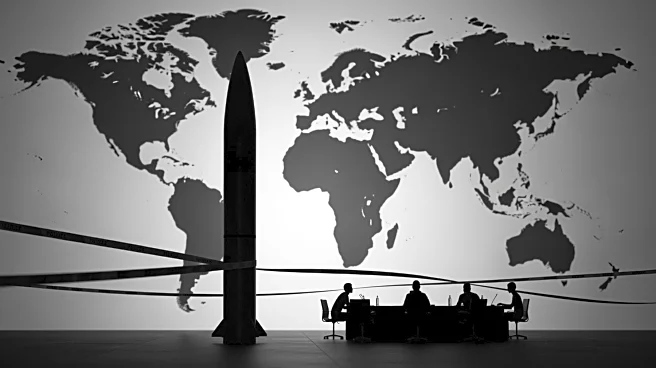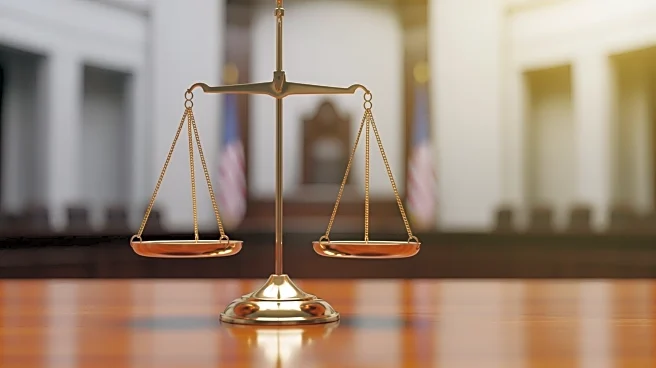What's Happening?
The resurgence of nuclear technology has raised concerns about nuclear proliferation, as highlighted in a recent discussion on the balance of terror. The Russia-Ukraine war has brought nuclear blackmail back into international relations, influencing decisions
in Washington and European capitals regarding military support to Ukraine. The occupation of nuclear sites by Russia has exposed vulnerabilities in international nuclear governance, with no institutional capacity or legal framework to address such threats. The historical context of nuclear weapons, from their inception during World War II to their role in modern politics, underscores the persistent threat they pose. The proliferation of nuclear capabilities is now a pressing issue, with up to 40 countries potentially able to develop nuclear weapons within a few years due to accessible technology.
Why It's Important?
The potential for increased nuclear proliferation poses significant risks to global security and stability. The lack of treaties controlling nuclear weapons, coupled with the ease of accessing nuclear technology, could lead to more countries acquiring nuclear capabilities. This shift could destabilize international relations and increase the likelihood of nuclear conflict. The historical lessons from the Cold War era, where nuclear weapons served as deterrents, may no longer apply in a world with more nuclear-capable states. The geopolitical landscape is further complicated by the involvement of major powers like China and India, whose positions on nuclear weapons influence global dynamics. The situation in Ukraine serves as a critical test case for the effectiveness of non-proliferation agreements and the role of nuclear deterrence in modern conflicts.
What's Next?
The international community faces the challenge of addressing the gaps in nuclear governance and preventing further proliferation. Efforts to renew and strengthen treaties controlling nuclear weapons are crucial to maintaining global security. The outcome of the Russia-Ukraine war will significantly impact future non-proliferation efforts, as it may influence other countries' decisions regarding nuclear armament. The role of major powers, particularly the United States, in providing security guarantees and maintaining a nuclear umbrella will be pivotal in shaping the future of nuclear proliferation. The potential for new arms races and the development of advanced nuclear technologies could further complicate efforts to achieve global disarmament.
Beyond the Headlines
The ethical and legal dimensions of nuclear proliferation are profound, as the potential for nuclear conflict raises questions about the morality of nuclear deterrence and the responsibility of nuclear-capable states. The cultural impact of living under the threat of nuclear war has shaped generations, influencing public perception and policy decisions. Long-term shifts in international relations may occur as countries reassess their security strategies in light of nuclear proliferation risks. The balance of terror, once a stabilizing force during the Cold War, may become a destabilizing factor in a multipolar nuclear world.














